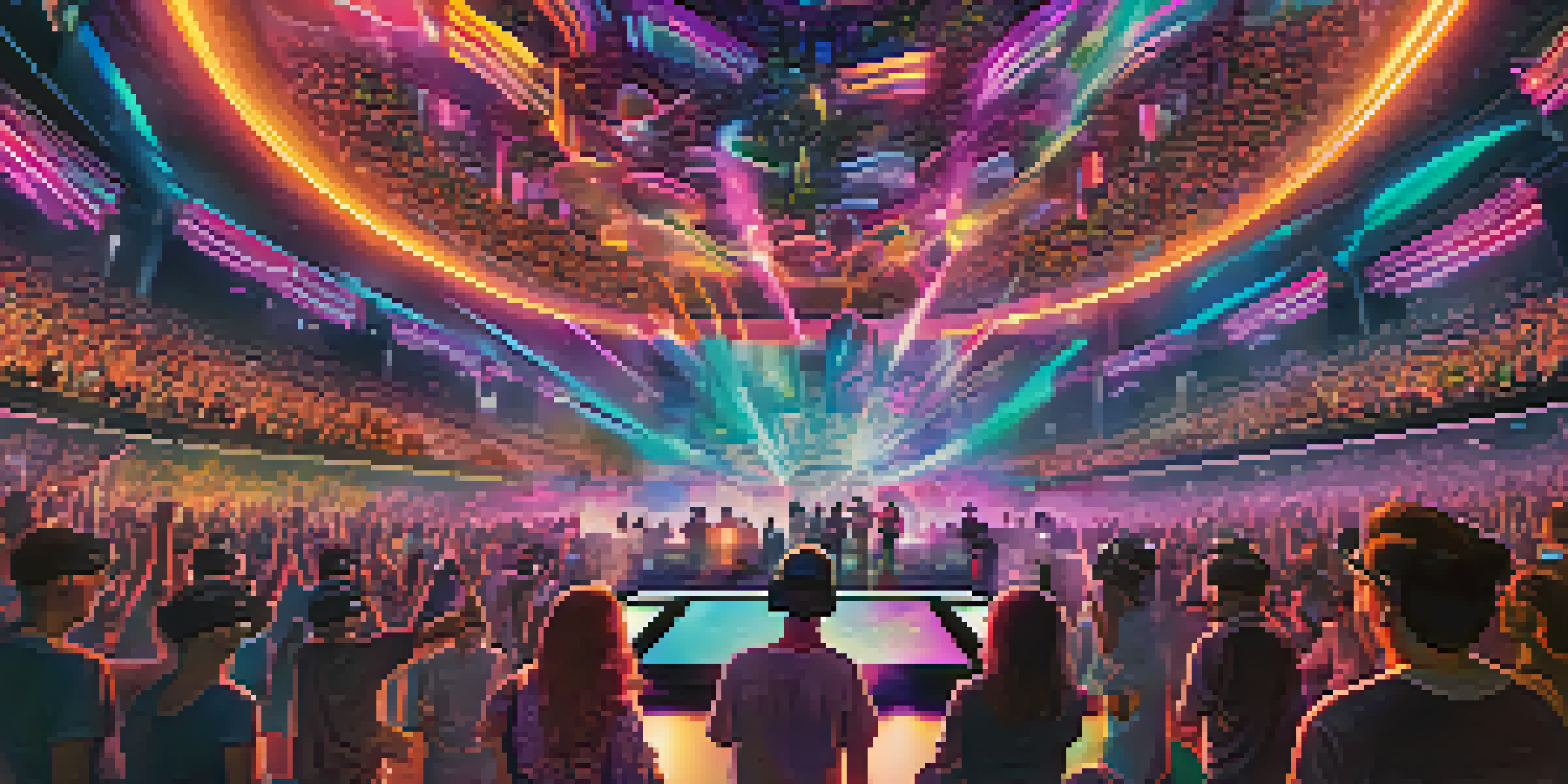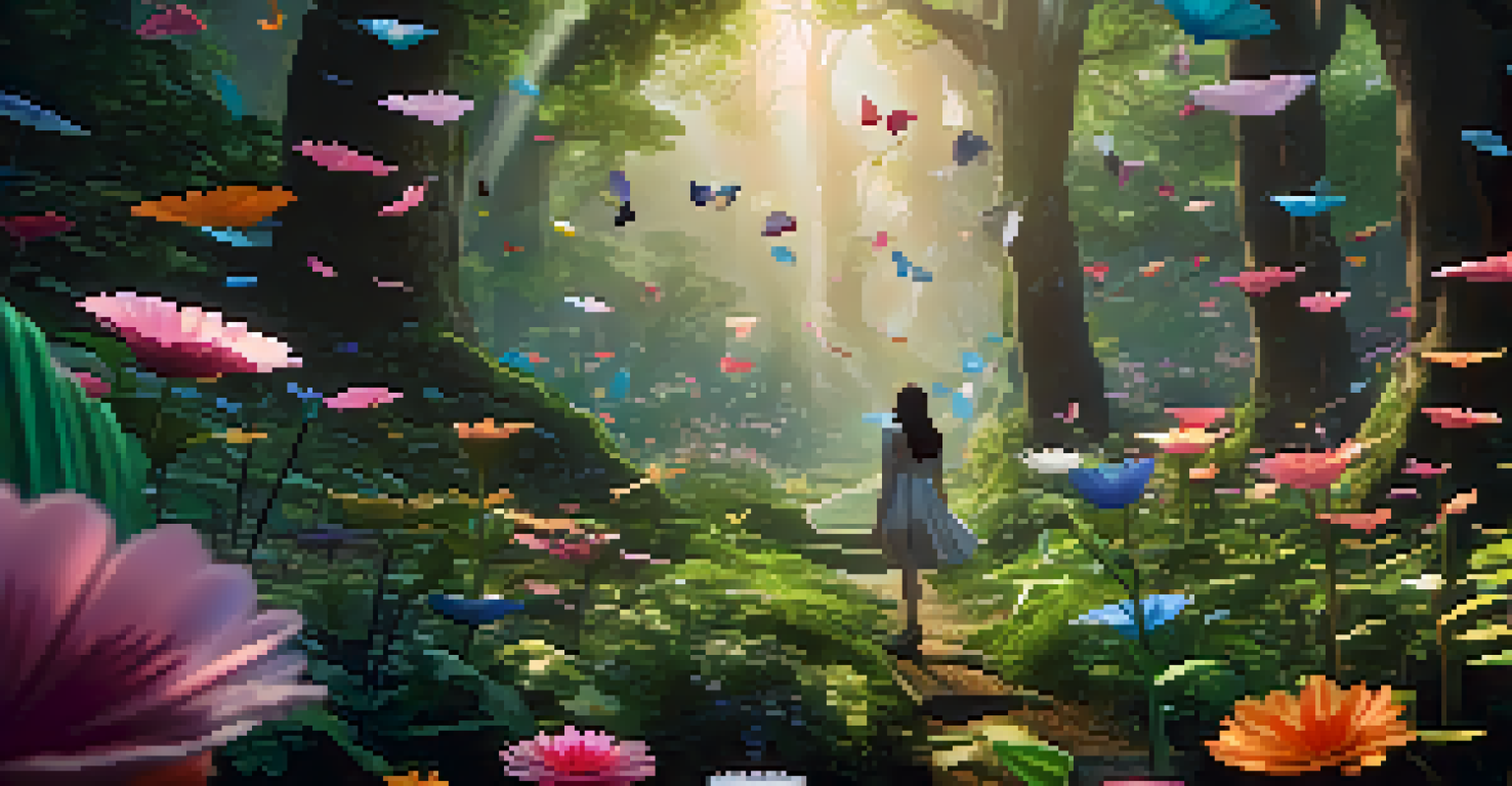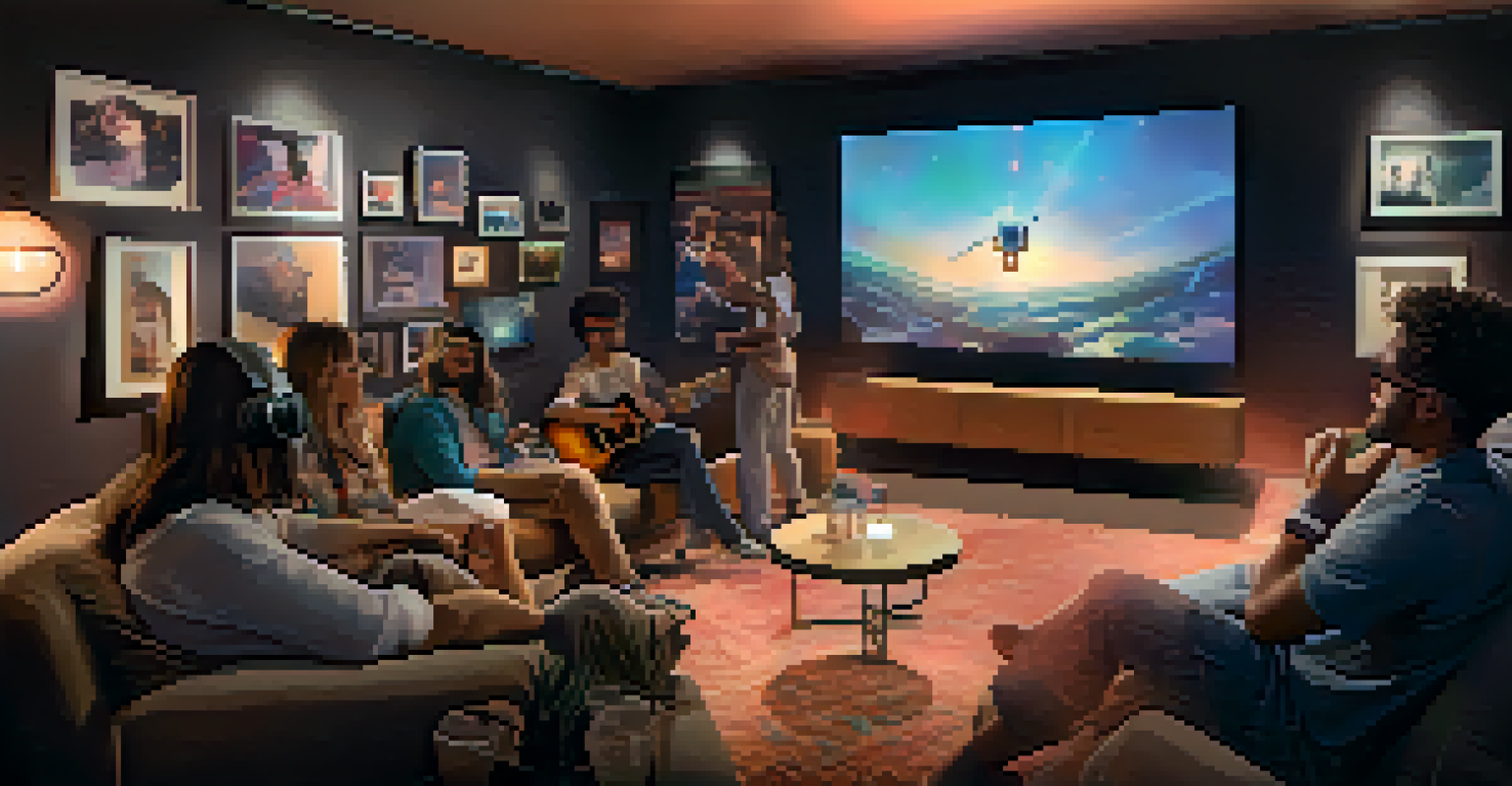Virtual Reality in Music Marketing: A New Approach

What is Virtual Reality and Its Impact on Music?
Virtual Reality (VR) immerses users in a computer-generated environment, offering a sense of presence that traditional media can't match. In the context of music, VR allows fans to experience concerts, music videos, and artist interactions in entirely new ways. Imagine being front row at a concert without leaving your living room; that’s the magic of VR.
Virtual reality is not just a new technology; it's a new way of experiencing the world around us.
As artists and labels recognize the potential of VR, they are starting to integrate this technology into their marketing strategies. This shift not only enhances fan engagement but also creates unique opportunities for artists to showcase their work. For example, VR can transform a simple album launch into a fully interactive experience.
By harnessing VR technology, musicians can create an emotional connection with their audience that resonates far beyond traditional marketing methods. This new layer of engagement is essential in a crowded market, helping artists stand out and build a dedicated fan base.
Creating Immersive Concert Experiences
One of the most exciting applications of VR in music marketing is the ability to host virtual concerts. These events allow fans from all over the world to attend without the barriers of travel or ticket costs. Imagine joining thousands of fans in a virtual venue, enjoying live performances from the comfort of your home.

Artists can use VR to craft unique concert experiences, offering backstage passes, 360-degree views, and exclusive content only available in the virtual realm. This not only enhances the concert experience but also creates a sense of community among fans who are sharing the experience together, even if they are miles apart.
VR Transforms Concert Experiences
Virtual reality allows fans to attend immersive concerts from anywhere, breaking down barriers of travel and cost.
Moreover, these virtual concerts can be recorded and shared, extending the reach of the performance. This means that even those who couldn’t attend live can still experience the magic, further promoting the artist's brand.
Engaging Fans with Interactive Music Videos
Interactive music videos are another innovative use of VR, allowing fans to step into the narrative of a song. Instead of passively watching, fans can explore different scenes, interact with elements, and even influence the story. This level of engagement keeps fans coming back, eager to experience the video in new ways.
Music is an outburst of the soul, and VR allows us to express that soul in a way that's never been done before.
For example, an artist might create a VR music video where fans can choose different paths or outcomes based on their interactions. This not only makes the visual experience more personal but also creates buzz as fans share their unique journeys with one another.
By leveraging VR for music videos, artists can enhance their storytelling and create a deeper emotional connection with their audience, making the music more memorable.
Building Exclusive Virtual Communities
VR technology can facilitate the creation of exclusive fan communities, where members can interact with each other and the artist in a virtual space. These communities can host events, discussions, and even meet-and-greets, deepening the relationship between artists and their fans. Imagine a VR lounge where fans gather to chat about their favorite tracks and upcoming releases.
Such platforms can also allow artists to give sneak peeks of new music or merchandise, creating a sense of exclusivity that fans crave. This not only fosters loyalty but also encourages fans to feel like they are part of the artist's journey.
Interactive Music Videos Engage Fans
VR enables fans to actively participate in music videos, creating personalized experiences that enhance emotional connections.
As these virtual communities grow, they can become powerful tools for artists, helping them to engage with their most dedicated followers and even gather feedback on new projects.
Innovative Promotion Strategies Using VR
Artists and labels are beginning to explore how VR can enhance their promotional strategies. For instance, a VR experience can be tied to a new album launch, allowing fans to explore the themes and inspirations behind the music. This innovative approach can turn a standard promotional campaign into a fully immersive experience.
By incorporating VR into their marketing, artists can reach audiences in new ways, capturing attention in a crowded digital landscape. This adds an element of excitement and novelty that traditional marketing methods often lack.
Additionally, VR allows for collaboration between artists and brands, creating unique promotional opportunities that can benefit both parties. For example, a brand might sponsor a VR concert, gaining visibility while enhancing the concert experience for fans.
Measuring Success in VR Music Marketing
One of the challenges with new technologies like VR is determining how to measure their effectiveness. Marketers need to find metrics that truly reflect user engagement and satisfaction. This could include tracking how long fans spend in a VR experience or how many times they return after the initial visit.
Surveys and feedback can also play a crucial role in understanding audience reactions. Gathering data on fan experiences can help artists refine their VR offerings and create even more compelling content in the future.
Building Exclusive Fan Communities
VR fosters exclusive virtual communities where fans can interact with each other and artists, deepening relationships and loyalty.
Ultimately, the success of VR in music marketing will depend on the ability to adapt and evolve based on fan preferences, ensuring that the experiences remain fresh and exciting.
Challenges and Considerations in VR Music Marketing
While the potential of VR in music marketing is vast, there are also challenges to consider. Not all fans have access to VR technology, which can create a divide in the audience experience. Artists and marketers must find ways to include everyone, regardless of their access to the latest technology.
Additionally, creating high-quality VR content can be resource-intensive, requiring significant time and investment. Artists and labels need to weigh the potential rewards against these costs, ensuring that their efforts are sustainable.

Finally, as with any new technology, there can be a learning curve. Artists and marketers must stay informed about best practices and emerging trends to make the most of their VR initiatives.